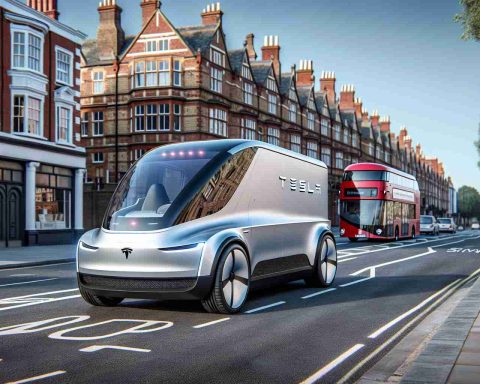Maximize Your Electric Vehicle Battery Health with These Expert Tips
Maintaining the health of your electric vehicle (EV) battery is crucial to ensuring its longevity and performance. Just like traditional vehicles, the battery is the heart of your EV. For those contemplating a purchase, especially of a used electric car, battery maintenance history can significantly influence your decision.
Autotrader, a leader in online automotive marketplaces, has introduced EV battery health scores for used electric vehicles, empowering buyers with insights into battery performance and usable range. This feature unlocks valuable information that was previously unavailable, aiding consumers in making informed choices.
Key factors, including driving patterns, climate conditions, and charging practices, greatly affect battery life. As stated by industry experts, modern EV batteries typically last between 12 and 15 years and can achieve 100,000 to 200,000 miles of use under optimal conditions.
To enhance your battery’s lifespan, adhere to these practices:
Charge Smartly: Keep your battery charged between 20% and 80% to avoid degradation.
Temperature Control: Monitor and maintain optimal battery temperature.
Stay Updated: Regularly check for necessary software updates to ensure proper battery management.
Watch for Warning Signs: Be alert to any decrease in performance, such as slower charging times.
Accelerate Gently: Avoid sudden bursts of speed, as this can drain your battery more quickly.
For additional resources on electric vehicles and their battery health, visit Autotrader’s official website.
Implications of Electric Vehicle Battery Health on Society and the Environment
As electric vehicles (EVs) become increasingly prevalent, the health of their batteries not only affects individual drivers but also resonates throughout society and the global economy. The shift towards EVs represents a significant change in transportation culture, encouraging a broader acceptance of clean energy solutions. With the introduction of tools like Autotrader’s EV battery health scores, consumers gain transparency, leading to heightened trust in purchasing used electric vehicles. This shift is pivotal as it supports consumer empowerment and nurtures a sustainable automotive market.
The integration of EVs reduces dependency on fossil fuels, which has far-reaching environmental impacts. A significant decrease in greenhouse gas emissions contributes to combating climate change, adjusting urban air quality, and fostering overall public health. Moreover, the lifecycle management of EV batteries affects resource extraction and recycling trends. As demand rises, manufacturers are prompted to implement more sustainable mining practices and develop effective recycling systems for batteries—their disposal is a critical environmental concern.
As we forward into an electrified future, future trends indicate that battery technology will continue to evolve. Innovations in solid-state batteries, for instance, promise higher energy densities and shorter charging times, revolutionizing the EV landscape. Long-term significance is underscored by these advancements; as battery life extends and efficiency improves, the attractiveness and accessibility of EVs will likely foster a cultural shift towards more sustainable lifestyles. Such changes can reshape urban planning, promoting the development of more pedestrian-friendly environments while reducing our collective carbon footprint.
Unlock the Secrets to a Longer-Lasting Electric Vehicle Battery
Understanding Electric Vehicle Battery Health
Maintaining an electric vehicle (EV) battery is essential not only for its longevity but also for ensuring optimal performance over time. As the demand for electric vehicles continues to rise, understanding how to care for your EV battery is becoming increasingly important for both new and used car buyers.
Key Factors Influencing EV Battery Life
Several elements can impact the health of an EV battery, including:
– Driving Patterns: Frequent rapid acceleration and high-speed driving can negatively affect battery longevity.
– Climate Conditions: Extreme temperatures—both hot and cold—can stress batteries and reduce their efficiency.
– Charging Practices: How and when you charge your vehicle can play a significant role in battery health.
Lifespan of EV Batteries
Modern electric vehicle batteries generally have a lifespan of 12 to 15 years, with many capable of enduring between 100,000 to 200,000 miles under optimal conditions. Understanding these metrics helps consumers make informed decisions, particularly when considering used EVs.
Features of EV Battery Health Scoring
Recently, platforms such as Autotrader have rolled out innovative features like EV battery health scores. These scores provide insights into:
– Battery Performance: Evaluation of how well the battery is functioning.
– Usable Range: Estimation of how far the vehicle can travel on a full charge.
These tools are invaluable for consumers looking to buy used electric vehicles. For further information, you can explore Autotrader’s resources.
Best Practices for Extending Battery Lifespan
To maximize the longevity of your EV battery, consider adopting the following habits:
1. Charge Smartly: Keep your battery charged between 20% and 80%. Regularly charging to 100% can lead to faster degradation.
2. Temperature Control: It’s important to manage your battery’s temperature. Consider parking in shaded areas during hot weather and minimizing exposure to freezing temperatures.
3. Stay Updated: Regular software updates from the manufacturer can enhance battery management and overall performance.
4. Watch for Warning Signs: Be attentive to decreasing performance indicators, such as longer charging times or reduced driving range.
5. Accelerate Gently: Practice smooth driving habits to minimize unnecessary battery drain.
Pros and Cons of Electric Vehicle Batteries
Pros:
– Lower operational costs compared to gasoline vehicles.
– Fewer moving parts lead to reduced maintenance needs.
– Environmentally friendly alternative to traditional vehicles.
Cons:
– Initial purchase price can be higher.
– Charging infrastructure may still be developing in some areas.
– Battery replacement costs can be significant after several years.
Conclusion: A Sustainable Future
As electric vehicles continue to gain traction worldwide, understanding how to manage battery health is crucial for consumers. By adopting best practices and making informed decisions, EV owners can ensure their batteries last for many years, benefiting both their wallets and the environment.
For more expert tips and resources on electric vehicles, visit Autotrader’s main page.


















